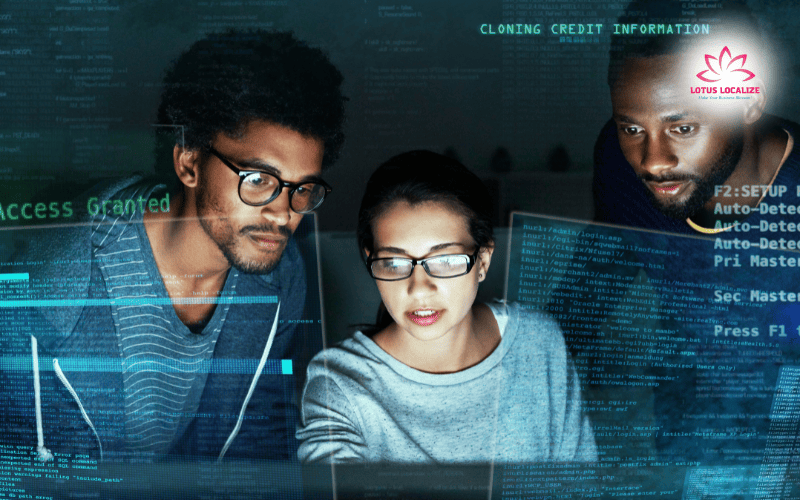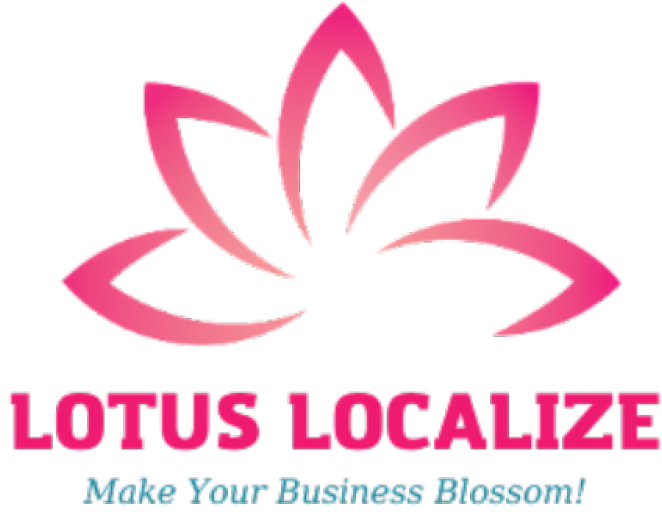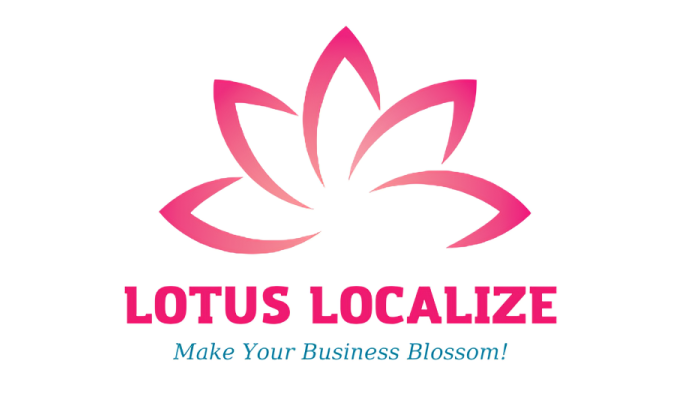
Technology, IT & Software
✅ Translation specialized in information technology
✅ Accurate translation
✅ Professional service - confidential
✅ 24/7 support
Technology, IT and software translation solutions for a digital world
Unboxing a new Iphone offers more than just cutting-edge technology; it’s the ability to personalize the interface in your preferred language – either it’s your native tongue or a rare language you cherish.
Previously, navigating foreign language manuals, perhaps in Chinese or English, felt like navigating a sea of incomprehensible information. Now, thanks to technological and software translation services, these manuals are seamlessly translated into Vietnamese, offering a smooth and intuitive user experience. This isn’t merely technological progress; it’s a revolution in how we access knowledge and utilize technology.
This article explores the trends and challenges of specialized translation in the IT and software fields, examining the requirements for accurate and effective translation within this demanding sector.
What is the definition of technology, IT and software translation?
Specialized translation within the technology, IT, and software industries is far more intricate than a simple word-for-word substitution.
Technology translation refers to the process of converting technical information, concepts, or innovations from one language to another language.
IT translation specifically pertains to the translation of content related to Information technology.
Software translation involves the adaptation of software applications, interfaces, and related documentation from one language to another.

These types of translation require not only linguistic skills but also a deep understanding of the subject matter, including relevant terminology, concepts, and industry standards. It encompasses various types of documents such as user manuals, technical specifications, software interfaces, and marketing materials, ensuring that the content is accurately localized for the target audience while maintaining clarity and functionality.
Specialized translation in technology, IT, and software is an essential process that bridges the gap between languages and cultures in a rapidly evolving digital landscape. As the technology sector continues to grow and diversify, the demand for specialized translation will only increase, underscoring its vital role in facilitating global communication and collaboration.
What does technology, IT, and software translation require?
Technology translation, IT translation, and software translation require a unique set of skills and knowledge to ensure that technical content is accurately and effectively communicated across languages. Here are the key requirements for successful specialized translation in these fields:
Linguistic proficiency
- Fluency in source and target languages: Translators must be fluent in both the source and target languages to accurately convey meaning, tone, and context.
- Cultural knowledge: Understanding the cultural nuances and context of both languages is essential to ensure that translations are appropriate and resonate with the target audience.

Technical expertise
- Industry knowledge: Translators need a solid understanding of the technology, IT, and software sectors, including familiarity with concepts, processes, and industry standards.
- Terminology mastery: Proficiency in technical terminology specific to the field is crucial. This includes knowledge of acronyms, jargon, and specialized terms that may not have direct translations.
Localization skills
- Adapting content: Beyond translation, localization involves adapting the content for cultural relevance and usability, such as adjusting date formats, currency, and measurement units.
- User Interface (UI) and user experience (UX) knowledge: Understanding how to translate and localize software interfaces to ensure they are intuitive and user-friendly.
Familiarity with translation tools
- Computer-assisted translation (CAT) tools: Proficiency in using translation software and CAT tools to enhance efficiency, ensure consistency, and manage terminology databases.
- Version control and management: Understanding how to manage different versions of documents, especially in software development, where updates are frequent.

Continuous learning
- Staying updated: Keeping abreast of the latest developments in technology, software, and translation practices is essential for maintaining relevance and expertise in the field.
- Professional development: Participating in training programs, workshops, and industry conferences to enhance skills and knowledge.
Specialized translation in technology, IT, and software requires a combination of linguistic skills, technical expertise, and attention to detail. By understanding the unique challenges and demands of this field, translators can produce high-quality translations that effectively communicate complex technical information, ensuring that users can fully engage with technological products and services in their preferred language.
Technology, IT, and software translation: trends and challenges.
The field of specialized translation in technology, IT and software is a dynamic and rapidly evolving sector, facing both exciting new trends and persistent challenges. The increasing globalization of technology necessitates accurate and culturally sensitive translation of complex technical information, impacting everything from software user interfaces to crucial technical documentation.
Trends of technology, IT, and software translation:
- Rise of machine translation (MT): While human translators remain crucial for accuracy and nuance, MT is increasingly integrated into the workflow, often used for initial drafts or to handle large volumes of less complex text. This trend presents opportunities for increased efficiency but also necessitates careful human review to ensure quality and accuracy.
- Artificial intelligence (AI) and automation: AI-powered tools are being developed to assist with tasks like terminology management, quality assurance, and even aspects of translation itself. This promises to streamline the translation process and potentially reduce costs, but raises concerns about potential job displacement and the need for ongoing human oversight.

- Increased demand for localization: Simple translation is often insufficient; localization—adapting software and documentation to specific cultural contexts— is increasingly in demand. This requires translators to understand cultural nuances, regional preferences, and legal requirements in various target markets.
- Focus on user experience (UX): The emphasis on creating intuitive and user-friendly software means translation must prioritize clear and accessible language, ensuring that translated interfaces are as easy to navigate as the originals.
- Growth of specialized translation management systems (TMS): TMS platforms enhance project management, collaboration, and quality control, improving efficiency and transparency in the translation process.

Challenges of technology, IT, and software translation:
- Keeping up with technological advancements: The rapid pace of technological change requires constant learning and adaptation. New technologies, programming languages, and technical terms emerge constantly, demanding continuous professional development for translators.
- Maintaining accuracy and consistency: The consequences of errors in technical translation can be severe, ranging from user confusion to software malfunctions. Ensuring consistent terminology and accurate rendering of technical details remains a significant challenge.

- Balancing human expertise with automation: Finding the optimal balance between leveraging the efficiency of MT and AI while maintaining the accuracy and nuance provided by human translators is a crucial ongoing consideration.
- Cultural nuances and localization: Accurately conveying technical information while remaining culturally sensitive and adapting to regional variations presents a complex challenge, especially when dealing with diverse target markets.
- Cost and time constraints: Meeting tight deadlines and managing budgets effectively remains a constant pressure for translation projects, particularly in the fast-paced tech industry.
Specialized translation in IT and software is a field marked by significant growth and opportunity, but also by considerable challenges. The successful navigation of these trends and challenges will depend on a continuing evolution of both technology and the skills and expertise of human translators, ensuring that the global reach of technology is matched by the clarity and accuracy of its communication.
Lotus Localize offers technology, IT, and software translation service
In the dynamic and competitive landscape of technology, effective communication across languages is crucial for businesses seeking to expand their global reach. Lotus Localize stands out as a premier provider of specialized translation services tailored for the fields of information technology (IT) and software. With a focus on quality and precision, we offer a range of services backed by an experienced translation team, a lifetime warranty on our translations, and adherence to international standards through ISO 17100:2015 certification.

Key offerings of Lotus Localize

At Lotus Localize, our translation team comprises skilled professionals with extensive backgrounds in IT and software. Each translator is not only fluent in the necessary languages but also possesses a deep understanding of technical terminology and industry-specific concepts. This expertise enables us to provide translations that are not only accurate but also culturally relevant and user-friendly.

We believe in the quality of our work, which is why Lotus Localize offers a lifetime warranty on our translations. This guarantee means that if you encounter any issues with our translated content at any time, we will promptly address and rectify them at no additional cost. Our commitment to customer satisfaction underscores our dedication to delivering translations that meet and exceed your expectations.

Lotus Localize adheres to the highest industry standards, as evidenced by our ISO 17100:2015 certification. This international standard outlines the requirements for quality management in translation services, ensuring that every project undergoes a rigorous process of quality assurance, including thorough proofreading and editing.
In conclusion, specialized translation in technology, IT, and software is crucial for businesses aiming to succeed in a globalized market. As the demand for precise and culturally relevant translations continues to grow, professionals in this field must adapt to emerging trends such as increased localization efforts, agile and continuous translation processes, and the integration of advanced translation technologies.
However, these advancements come with significant challenges, including the need for technical expertise, consistency in terminology, cultural sensitivity, and the ability to keep pace with rapid technological changes. By effectively navigating these trends and challenges, businesses can ensure that their technical content is accessible and user-friendly, fostering better communication with diverse audiences worldwide. Ultimately, investing in high-quality specialized translation not only enhances user experience but also strengthens brand reputation and drives global success.
Lotus Localize believes that with advanced technology and strict translation management standards, it can offer customers high-quality IT translation services while maintaining a strong market reputation. If you have any questions or need assistance with translation services in specialized fields: life science translation, marketing translation, financial translation, government translation, legal translation,… please contact Lotus Localize immediately at +84 866 224 968 or visit the website: lotus-localize.com or dichthuathoasen.com/en/ for advice on the best solutions!
Allow Lotus Localize to assist you in achieving your goals of conquering the world, bringing Vietnamese products, people, and culture to an international level, and generating miracles!
LOTUS LOCALIZE – MAKE YOUR BUSINESS BLOSSOM!
QUALITY PROMISE
Lotus Localize offers consistent, high-quality service delivery in all customer engagements. Our in-house translators and staff adhere to well-established business processes, allowing us to communicate properly, deliver on time, and surpass client expectations.



